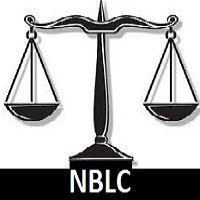Best Restructuring & Insolvency Lawyers in Faisalabad
Share your needs with us, get contacted by law firms.
Free. Takes 2 min.
List of the best lawyers in Faisalabad, Pakistan
About Restructuring & Insolvency Law in Faisalabad, Pakistan
Restructuring and insolvency law in Faisalabad, like in other cities of Pakistan, provides a legal framework for companies and individuals who are facing financial difficulties. These laws are designed to help debtors reorganize their financial affairs or to allow for an orderly winding down of businesses. The primary aim is to give struggling businesses a chance to recover while ensuring that creditors' rights are respected. Faisalabad, being a major industrial and commercial hub, sees a considerable amount of restructuring and insolvency cases, especially among textile, manufacturing, and trading companies. Navigating this area of law requires a careful understanding of both federal legislation and local practices.
Why You May Need a Lawyer
There are several situations where consulting a lawyer who specializes in restructuring and insolvency is essential in Faisalabad:
- Your business is unable to meet its financial obligations or is threatened by insolvency.
- You are owed money by a company or individual who is going through insolvency proceedings.
- You need help negotiating with creditors to avoid bankruptcy or to reach a settlement.
- You want to understand the implications of liquidation, winding up, or bankruptcy laws on your assets or business.
- You wish to protect your rights and interests during court-supervised restructuring, such as through a Scheme of Arrangement.
- You are interested in alternative solutions like voluntary arrangements or settlements outside of court.
- You face personal liability as a director, partner, or guarantor of a firm undergoing restructuring or insolvency.
- There are disputes about the ranking and payment of debts among different creditors.
Local Laws Overview
Restructuring and insolvency in Faisalabad is governed mainly by federal laws, with applications at local courts and regulatory bodies. Key legislation includes:
- Companies Act, 2017 - Provides legal procedures for restructuring, winding up, and liquidation of companies.
- Insolvency (Karachi Division) Act, 1909 - Applies to individual bankruptcies (excluding companies), though it's somewhat outdated and often used in the absence of a more modern regime.
- Banking Companies (Recovery of Loans, Advances, Credits and Finances) Act, 1997 - Deals with the recovery of loans by banks and financial institutions.
- Secured Transactions Act, 2016 - Governs the registration of security interests over movable property.
- Relevant Rules and Regulations - There are provisions for schemes of arrangement, compromises, and other restructuring options under the Companies Act, which can be supervised by the Securities and Exchange Commission of Pakistan (SECP) and local courts.
In Faisalabad, commercial disputes including insolvency are handled by civil courts and certain specialized tribunals, with assistance from local lawyers experienced in enforcing and negotiating under these laws.
Frequently Asked Questions
What is insolvency?
Insolvency is the situation where an individual or business is unable to pay their debts as they become due. This can lead to legal proceedings for restructuring, liquidation, or bankruptcy as per applicable laws.
What is the difference between restructuring and liquidation?
Restructuring is the process of reorganizing a company's financial and operational structure to resolve its financial problems and keep it afloat. Liquidation is the process of closing the company and selling its assets to pay off debts.
Can a business continue operating during insolvency proceedings?
Depending on the circumstances and the court's approval, businesses may continue to operate under supervision whilst undergoing restructuring or a scheme of arrangement. However, during liquidation, business operations generally cease except as required to wind down the entity.
What is the role of the Securities and Exchange Commission of Pakistan (SECP) in insolvency cases?
SECP oversees corporate restructuring, schemes of arrangement, and the winding up of companies registered under the Companies Act. It ensures compliance with legal procedures and protects the interests of all parties involved.
Can individuals declare bankruptcy in Faisalabad?
Yes, individuals can declare bankruptcy under the Insolvency (Karachi Division) Act, 1909, but the procedure is old-fashioned. There are calls for legislative reform in this area to provide more modern solutions.
What options do creditors have if a debtor becomes insolvent?
Creditors can file claims in restructuring or liquidation proceedings, initiate legal action to recover debts, or negotiate repayments or settlements. Secured creditors may have priority in the distribution of assets.
What happens to employees during a company's insolvency?
Employees are considered preferential creditors in winding up proceedings, meaning some of their dues may be paid before others. However, payment depends on available assets and compliance with legal procedures.
Can debts be restructured outside of court?
Yes, debts can often be restructured through voluntary agreements or negotiation with creditors without initiating formal court proceedings. Legal guidance is recommended to ensure these agreements are compliant and enforceable.
Are directors personally liable for company debts during insolvency?
Directors are generally not personally liable for company debts, except in cases of fraud, wrongful trading, or breach of fiduciary duties. Specific advice should be sought to evaluate any personal risks.
How long does insolvency or restructuring proceedings usually take in Faisalabad?
The duration varies depending on the complexity of the case, number of creditors, and legal challenges involved. Simple restructuring might take a few months, while complex liquidations can take a year or more.
Additional Resources
If you need more information or support regarding restructuring and insolvency in Faisalabad, consider contacting the following:
- Securities and Exchange Commission of Pakistan (SECP) for company-related insolvency matters
- Lahore High Court (Faisalabad Bench) for court-supervised insolvency cases
- Pakistan Banking Mohtasib for banking and debt disputes
- Faisalabad Chamber of Commerce and Industry for business support and referrals
- Local lawyers and law firms specializing in corporate, banking, and commercial law
Next Steps
If you are facing financial challenges or considering restructuring or insolvency in Faisalabad:
- Gather all relevant financial documents and details of your situation.
- Consult a specialized lawyer to discuss your options and the best course of action.
- Carefully follow your lawyer's advice on negotiations, court filings, or restructuring plans.
- Communicate honestly with creditors and stakeholders to seek amicable solutions where possible.
- Keep yourself updated about ongoing legal proceedings and maintain all records for future reference.
Taking early and informed action, with proper legal guidance, can help you achieve the best possible outcome in restructuring and insolvency matters in Faisalabad, Pakistan.
Lawzana helps you find the best lawyers and law firms in Faisalabad through a curated and pre-screened list of qualified legal professionals. Our platform offers rankings and detailed profiles of attorneys and law firms, allowing you to compare based on practice areas, including Restructuring & Insolvency, experience, and client feedback.
Each profile includes a description of the firm's areas of practice, client reviews, team members and partners, year of establishment, spoken languages, office locations, contact information, social media presence, and any published articles or resources. Most firms on our platform speak English and are experienced in both local and international legal matters.
Get a quote from top-rated law firms in Faisalabad, Pakistan — quickly, securely, and without unnecessary hassle.
Disclaimer:
The information provided on this page is for general informational purposes only and does not constitute legal advice. While we strive to ensure the accuracy and relevance of the content, legal information may change over time, and interpretations of the law can vary. You should always consult with a qualified legal professional for advice specific to your situation.
We disclaim all liability for actions taken or not taken based on the content of this page. If you believe any information is incorrect or outdated, please contact us, and we will review and update it where appropriate.














